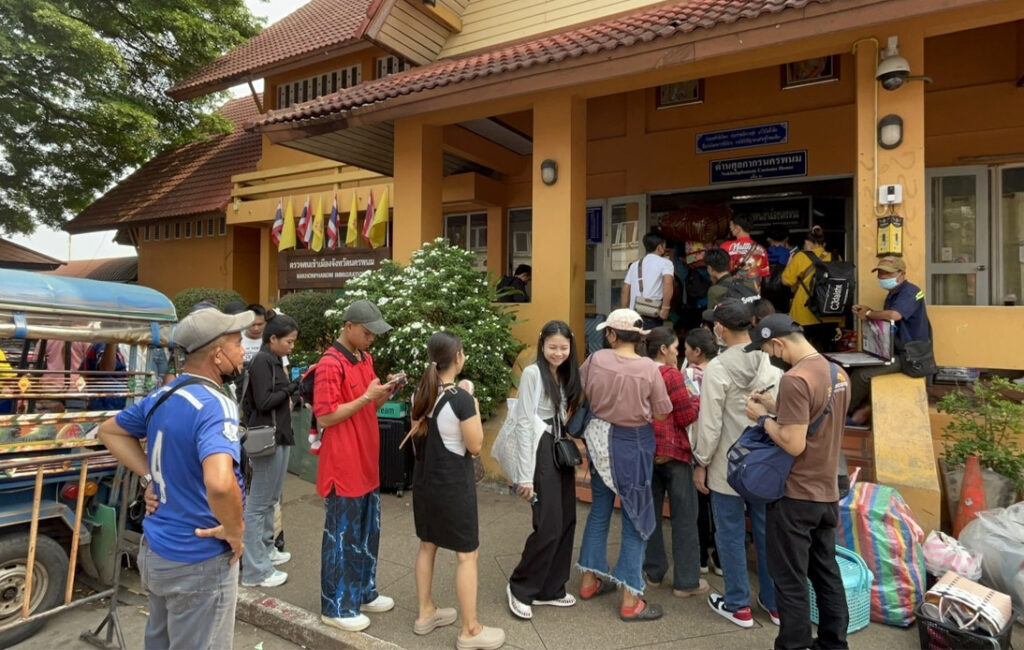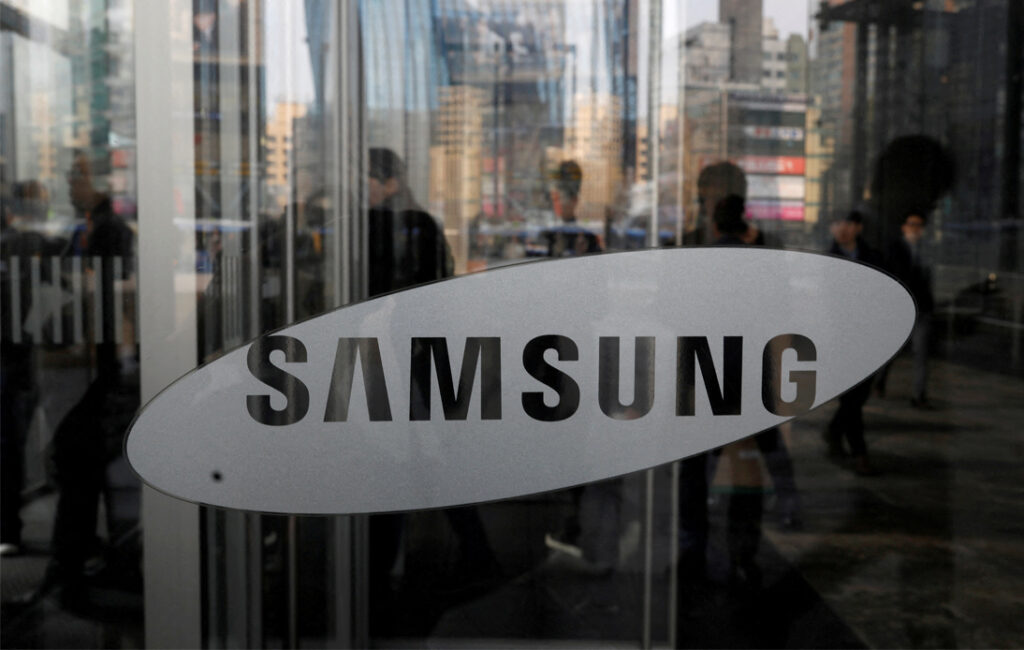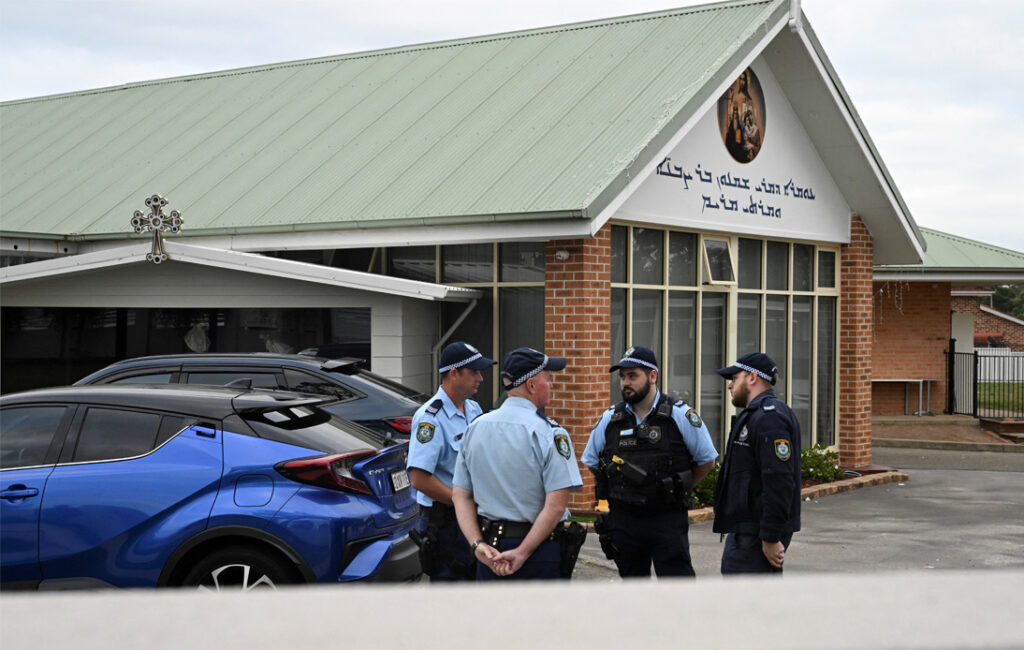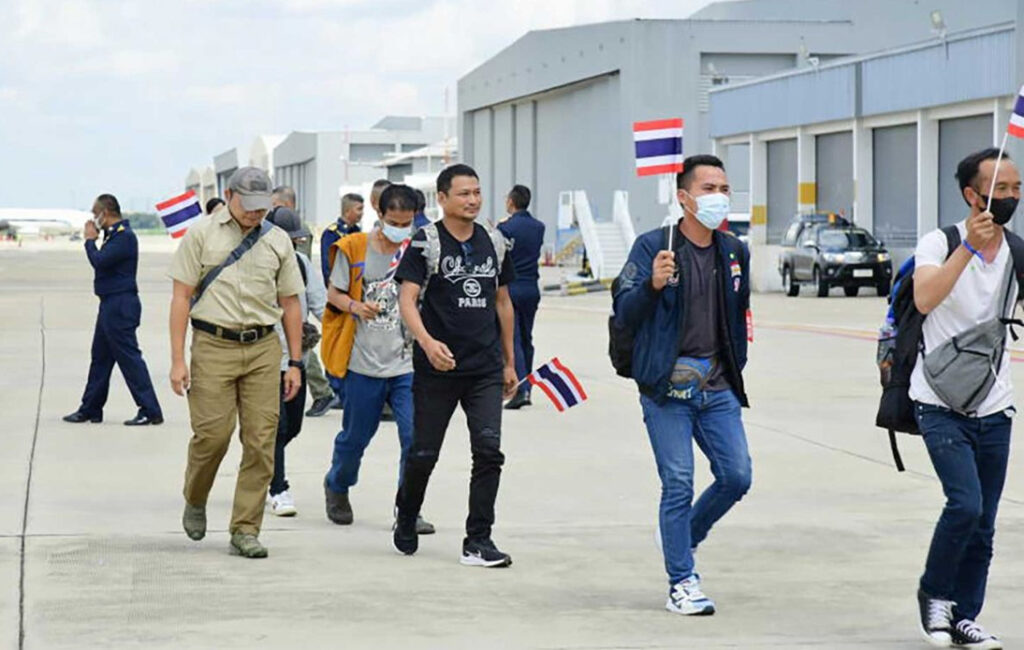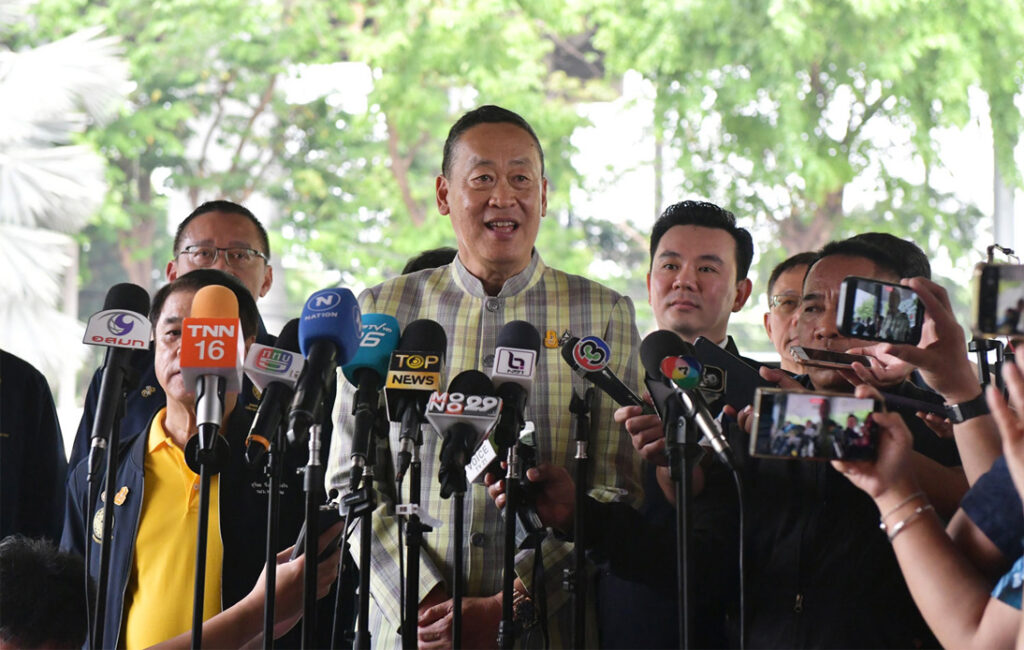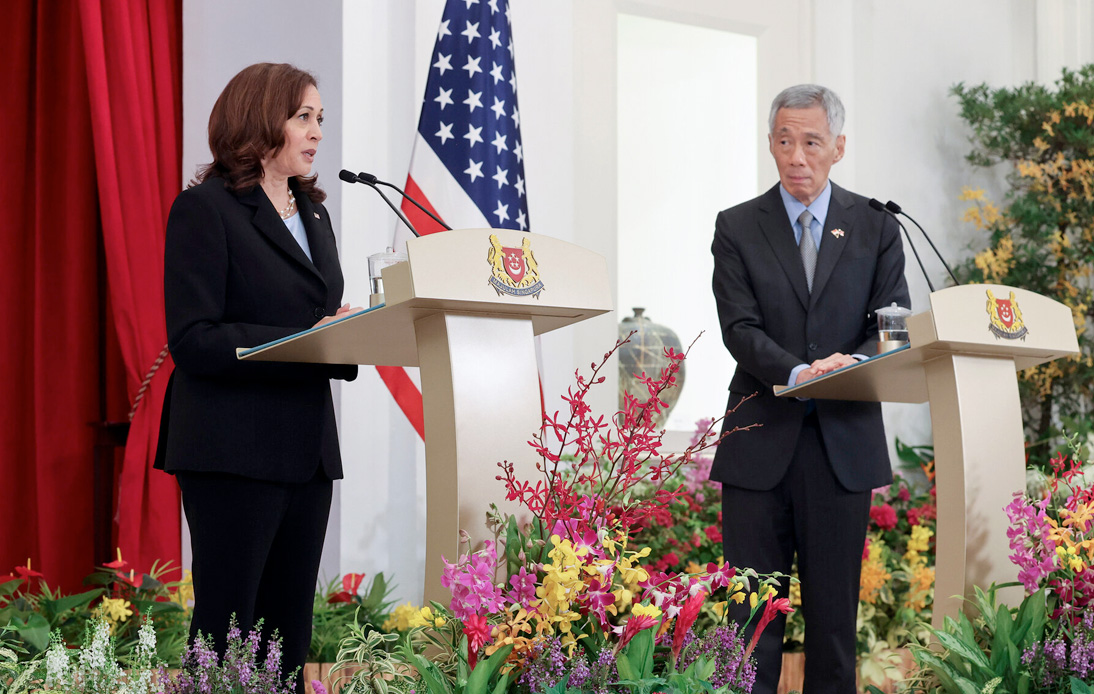
In her first official visit to Southeast Asia on Tuesday, US Vice President Kamala Harris spoke about Beijing’s actions in the South China Sea.
During a speech in Singapore, Harris said the Chinese government’s actions were “unlawful” and undermined the international order, threatening the other countries’ sovereignty.
“We know that Beijing continues to coerce, to intimidate and to make claims to the vast majority of the South China Sea,” she said.
“These unlawful claims have been rejected by the 2016 arbitral tribunal decision, and Beijing’s actions continue to undermine the rules based order and threaten the sovereignty of nations,” Harris added.
But the United States would continue to support its allies and partners in the face of those threats, she stated.
Harris referred to a claim by China over the South China Sea that a Permanent Court of Arbitration’s tribunal dismissed as legally baseless in 2016.
Besides being a resource-rich waterway, the South China Sea is a vital commercial transportation route where trillions of dollars of world trade circulate year after year.
But it has been subject to territorial conflicts by China, Vietnam, Taiwan, the Philippines, and Malaysia.
Beijing ignored the court’s ruling on the South China Sea, deploying vessels and increasing its presence to patrol the waters and build artificial islands.
According to Harris, the United States seeks to promote a free and open Indo-Pacific, referring to the area lying between the Pacific and Indian Oceans.
The United States-China rivalry has intensified in recent years, leaving Southeast Asia in the middle of the dispute.
For decades, the North American country has maintained an important presence in the region through economic and security commitments.
However, Beijing’s influence in Southeast Asia has increased due to the aggressive push from China and its programs, including its Belt and Road Initiative.
The US vice president promised nations in the region that her country would not force them to choose between Beijing and Washington.
She claimed their engagement in Southeast Asia and the Indo-Pacific “is not against any one country, nor is it designed to make anyone choose between countries.”
Harris added that the US government remains committed to Asia despite criticism against President Joe Biden on his handling of the US troops’ withdrawal from Afghanistan.
Reiterating her Monday remarks, she said the country was “laser focused” on evacuation efforts.
The US vice president arrived in Singapore on Sunday with her plans to leave for Vietnam delayed until Wednesday.
This was due to two US officials being tested for possible cases of the so-called Havana syndrome, characterized by unusual, unexplained health problems as first reported late in 2016.





